|
New Mills Industrial Landscape
Ruth Andrews
|
|
In 2016 Keith and I visited New Mills
near Manchester. The name was first used in 1391
and referred to a corn mill on the river Goyt.
Despite having grown up 30 or so miles north of it,
and vaguely knowing the area, I was interested to
discover its amazing collection of mills.
|
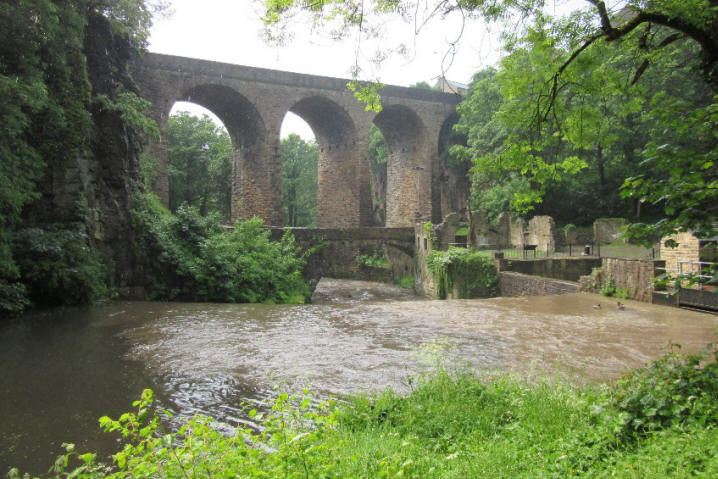 |
The rivers Goyt and
Sett have carved out a spectacular 30m deep
sandstone gorge called The Torrs, which virtually
cuts the town in half. It is spanned by Church Road
bridge built in 1835 to carry the turnpike road and
the railway bridge of 1860; then in 1884 the
imposing 29m high Union Road bridge was constructed
across the centre of the gorge, and is now its most
outstanding feature (left). |
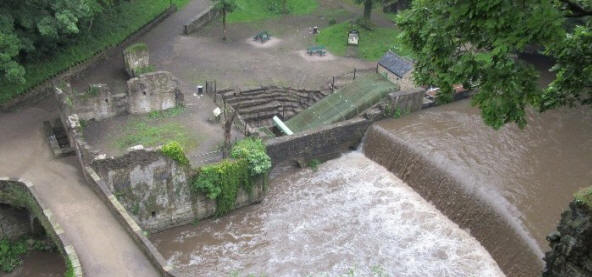 |
From the 1780s
onwards a series of cotton mills were constructed
alongside the river. Most are now derelict or
converted to residential use, although one former
mill makes ‘Swizzels’ love heart sweets.
|
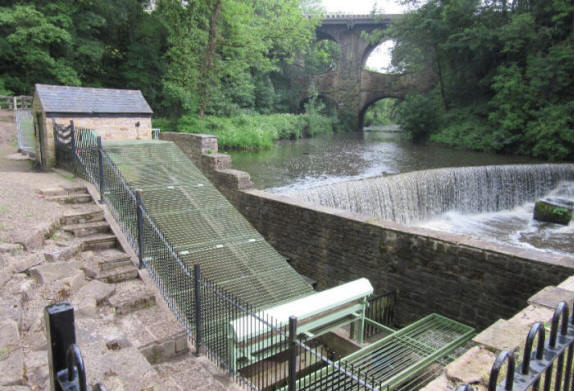 |
The shell of Torr
Mill, which burnt down in 1912 and was not rebuilt,
provides a setting for the Torrs Hydro (above left
and left). This is a reverse Archimedean screw,
which generates electricity for the Co-op store in
New Mills, any surplus being sold to the National
Grid. The hydro started to produce electricity in
2008 and was the first community-owned and -funded
scheme in the country.
|
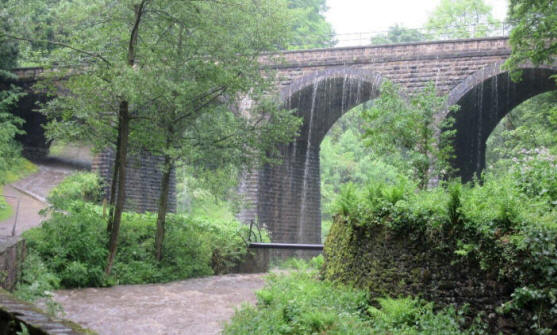 |
We had heard distant
thunder as we started to walk down into the gorge,
but then heavy rain forced us to take shelter for a
while under Church Road bridge with its distinctive
reinforcing arches (above left), and watch as the
river became a raging muddy torrent, and the railway
bridge developed an entertaining waterfall, leaking
through the parapets (left)! |
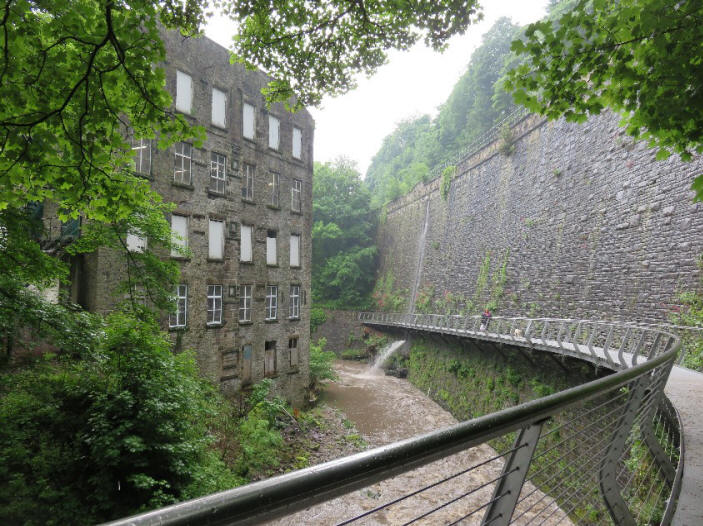 |
When the rain ceased,
we finished our walk by traversing the Millennium
Walkway which allows passage across the face of the
railway embankments through the narrowest part of
the gorge, opposite the unused and crumbling Torr
Vale Mill. This mill dates from the 1780s and
operated as a textile mill until 2000 – claimed to
be the longest continuously operating cotton mill in
England. It was quite scary walking on the narrow
footway, especially with the swollen river rushing
just below.
The walkway and Torr
Vale mill (left) with the muddy river after the
storm, and a view from above the railway (below
left) before the rain started.
|
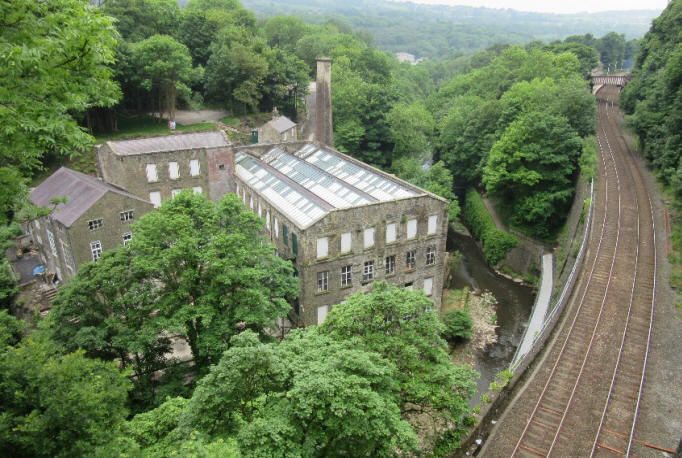 |
|
| |
